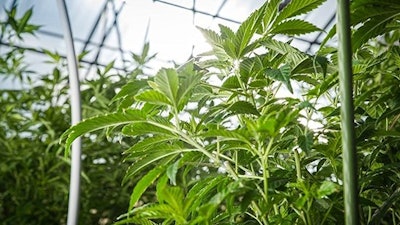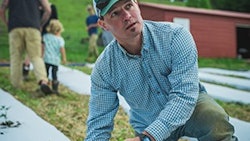
In August 2019, the team at Front Range Biosciences (FRB) saw a boom in growth when the Lafayette, Colo.-based hemp genomics business acquired the entire R&D team at Steep Hill.
Heading into 2020, the company shows no signs of slowing down. In January alone, FRB announced four partnerships with different distributors that can both share the company’s genetics and also help build relationships with farmers across the country.
“For us, we’re trying to establish a large footprint so we can get our products into lots of different geographies and expand our market share and our presence in the industry,” CEO Jon Vaught, Ph.D., tells Hemp Grower. “We’ve been working aggressively to not only build out our own internal sales force for our team to help support our customers, but also leverage existing sales and distribution relationships that companies ... already have in place.”
FRB’s newest partners extend coast to coast and include:
Coastal Alabama Organix LLC, Fairhope, Ala. The company will offer FRB’s full product lineup in the southeast and Gulf Coast regions of the U.S.
Alterra Hemp, Fort Collins, Colo. The company will offer FRB’s Proven Performers CBD varieties along with Panakeia, FRB’s first high-cannabigerol variety that contains 0% tetrahydrocannabinol (THC). Alterra provides hemp clones across the U.S. with rooting stations located in Oregon, California, Colorado, Arizona, Tennessee and Florida. "Alterra works closely with Front Range Biosciences to ensure that farmers receive consistent genetics that will help minimize the risk of crop failure, increase yields, achieve compliance and maximize return on investment," said Cameron and Victoria Wylde, the owners of Alterra, in a press release.
Aligned Distributing LLC, Lakewood, Colo. The company, which sells equipment and supplies to indoor and field cultivators across the U.S. and Canada, has extended its existing sales partnership with FRB.
Griffin Greenhouse Supplies Inc., Tewskbury, Mass. The company, which has 16 fully stocked service centers, will distribute FRB’s Clean Stock hemp varieties nationwide. The varieties were cultivated from tissue culture to assure they’re certified, disease-free and true to type.
These newly announced partners are in addition to a network of several other companies FRB has collaborated with in its nearly four years of existence. Together, the partnerships are quickly helping FRB expand its footprint nationwide by building on the company’s reach last year to 10 different states.
“Basically, most of the U.S. now has some form of hemp cultivation, especially in places where you have traditionally grown outdoor row crops, and you’ve got good soil and good climates for growing. I think we’re targeting all of those places [for partnerships],” Vaught says.
Last year, FRB shipped nearly 2 million plants between April and July. Vaught expects the addition of the new partners, on top of others FRB plans to formalize and announce later this year, will “certainly more than double” that number for the upcoming growing season.
With more growth comes the need for more capacity, which is fortunately another benefit many of FRB’s partnerships provide. While FRB owns “several acres” of greenhouse space, Vaught says, that number starts to balloon quickly when including the space its partnerships provide for cultivation.
The partnerships carry other perks as well. Coastal Organix, for example, also has a R&D facility that FRB says has served as a field trial partner to mesh its “current products with future technologies.” And working with Aligned Distributing LLC, FRB has recently launched a seven-part educational video series titled “Growing Hemp: Best Practices for Success.” (Two episodes have been released so far.)
Vaught says through his partners, he hopes to build lasting relationships with farmers to help them successfully scale up their operations over time.
“There’s no need to reinvent the wheel. In agriculture and farming communities especially, it’s all about relationships,” Vaught says. “I think being able to leverage trust in the relationships that these distribution and sales groups have in place already is very valuable.”
























